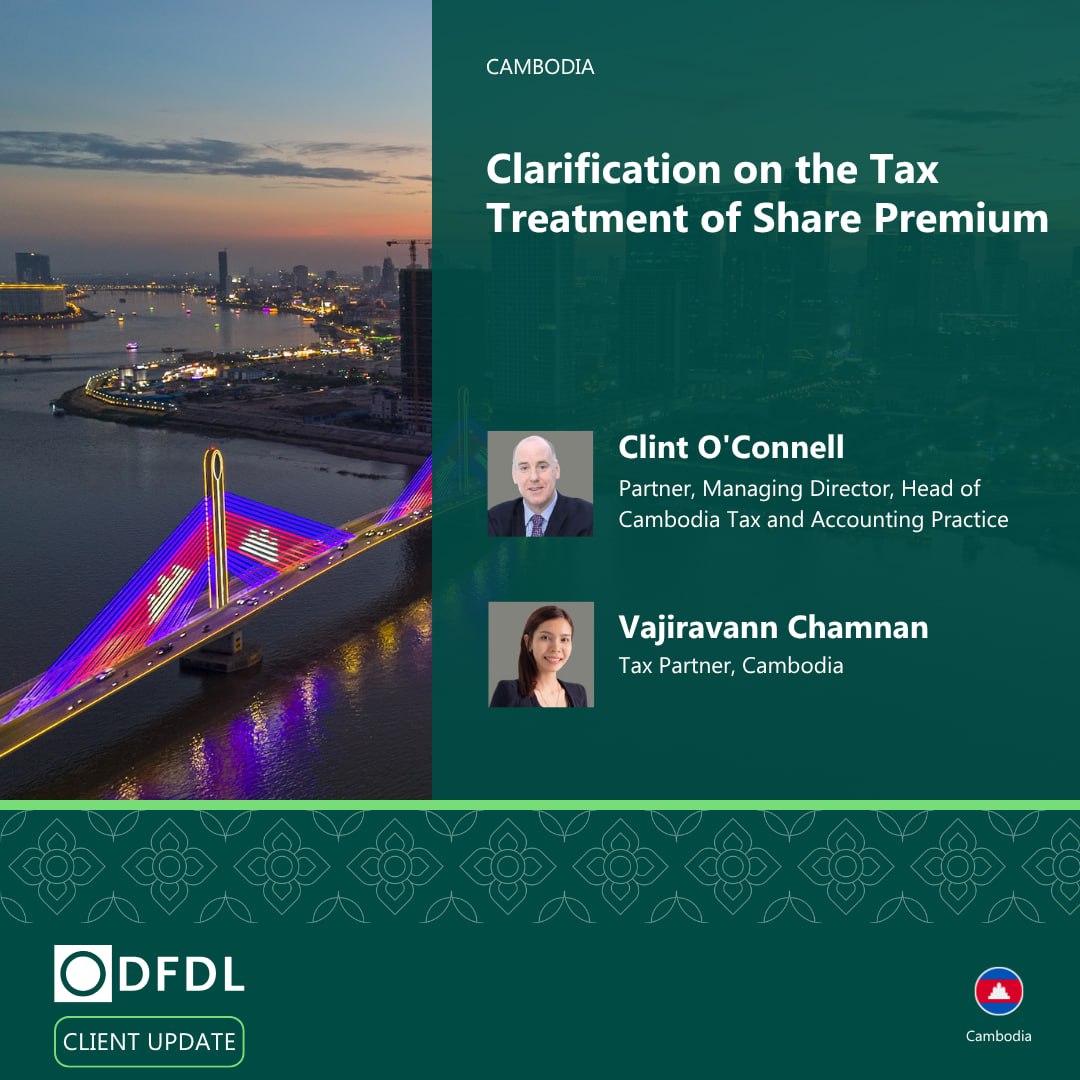Cambodia Investment Review
Cambodia’s General Department of Taxation (GDT) has issued a new directive to resolve long-standing ambiguities regarding the tax treatment of share premium, a move that brings greater clarity to investors and enterprises amid concerns over inconsistent tax audit interpretations.
The instruction, issued under No. 18574 GDT on June 17, 2025, confirms that share premium is not considered taxable income. Instead, it is classified as a capital contribution from shareholders, and therefore excluded from the taxable income base, aligning with Article 7 of the Law on Taxation (Royal Kram No. NS/RK/0523/004 dated May 16, 2023) and Prakas No. 578 MEF.P.GDT (dated September 19, 2024).
Reinforcing Legal Certainty for Investors
The announcement addresses growing concerns from the private sector and chambers of commerce over discrepancies during audits, where tax officers had reportedly reclassified share premium as income, resulting in unexpected tax liabilities. The new instruction reaffirms that share premium does not fall within the scope of income tax—provided certain documentation standards are met.
Read More: DFDL Cambodia Releases 2025 Real Estate Investment Guide Amid Legal and Regulatory Shifts
To ensure compliance, the GDT emphasizes that companies must:
- Ensure share capital and share premium amounts are fully paid into the enterprise
- Maintain accurate and transparent accounting records
- Provide proper documentation, such as share subscription agreements and bank remittance records
Where documentation is incomplete or missing, the GDT reserves the right to recharacterize these capital injections as taxable income, potentially leading to significant tax exposures.
Industry Reaction and Next Steps
Clint O’Connell, Partner and Managing Director at DFDL Cambodia, noted that the clarification will be welcomed by investors and legal advisors seeking certainty in corporate structuring. “This move by the GDT provides much-needed clarity for companies and reinforces the importance of proper documentation and transparency in financial reporting,” he said.
DFDL has also released a case study detailing the calculation and tax considerations around share premium contributions, available for download on its website.
Professional Advice Recommended
Enterprises are advised to review their current capital contribution records and consult with licensed tax agents in Cambodia to ensure compliance. Tax services in Cambodia must be undertaken by a licensed tax agent, such as Mekong Tax Services Co., Ltd, a member of DFDL.
This clarification marks another step toward improved tax transparency and investor confidence in Cambodia’s business environment, especially as the country continues to modernize its tax system under the Ministry of Economy and Finance’s broader reform agenda.





